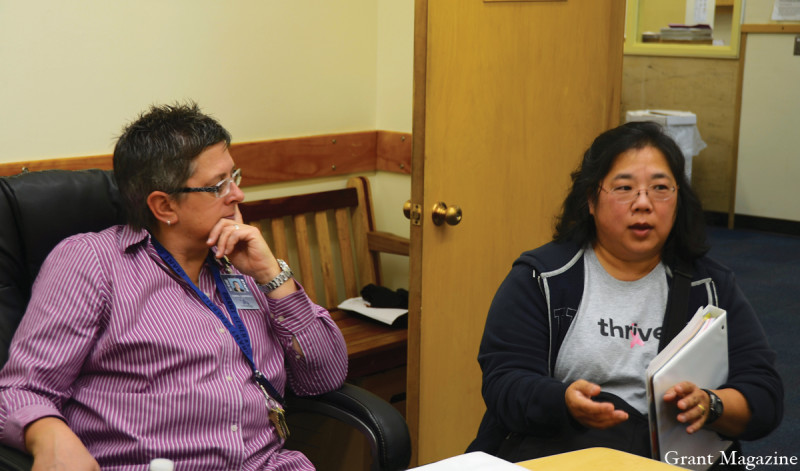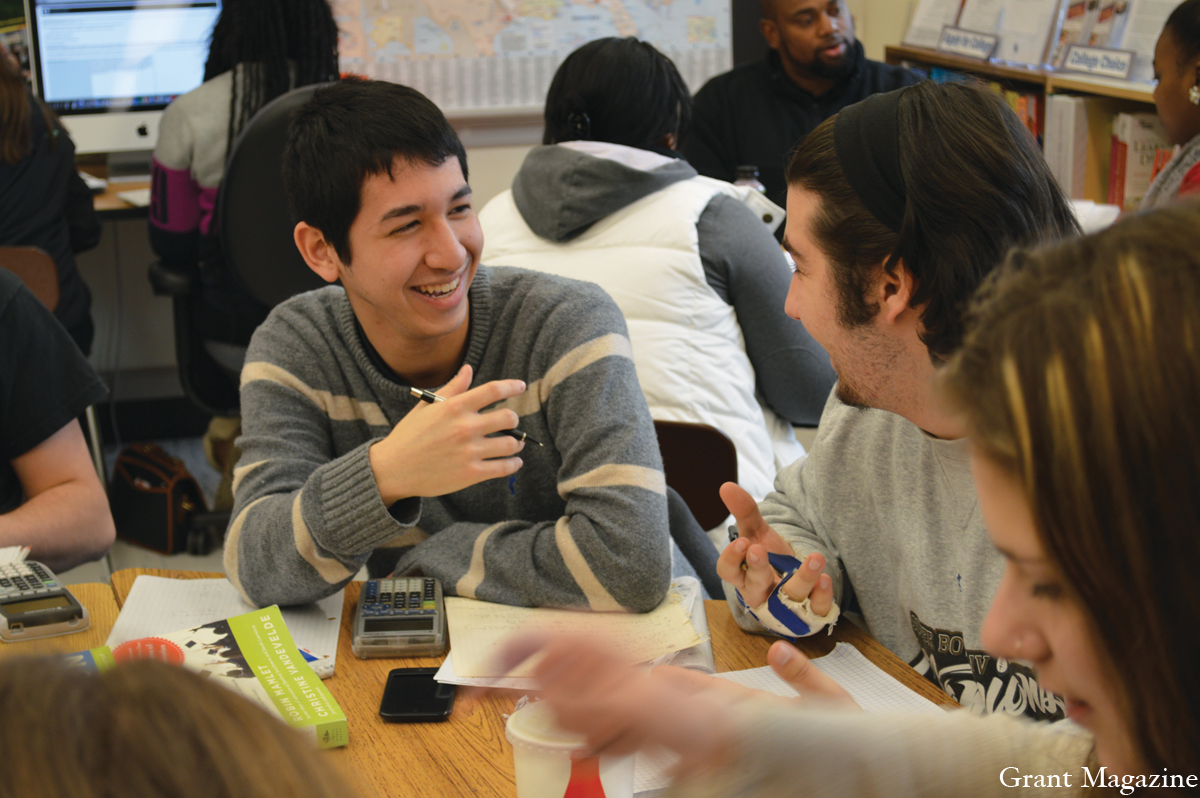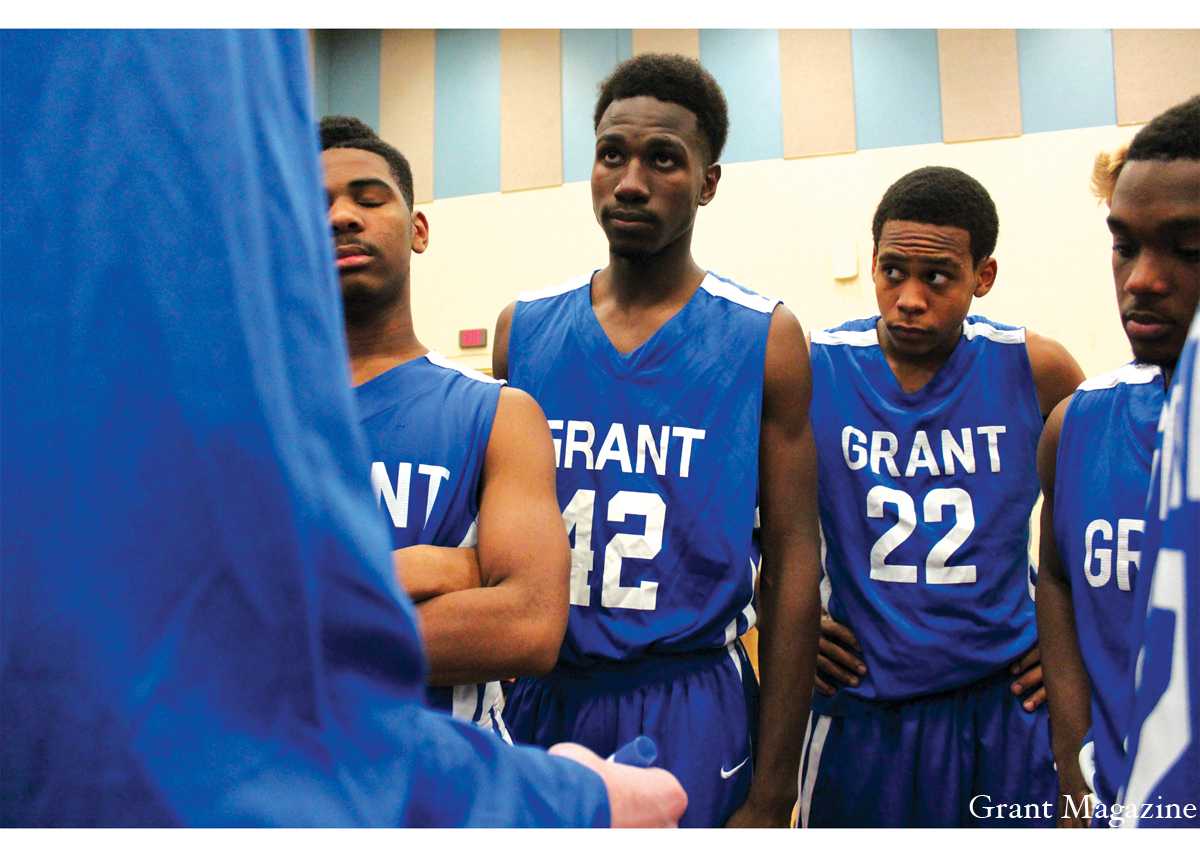
Recently, sophomore Ruby Weinstein spent more than four and a half hours washing cars in a Burgerville parking lot with the Grant High School girls’ rugby team. They pulled in a total of $200.
“It was hard work,” says Weinstein, who is 15. “But as a rugby team, we already put in a lot of work on the field. This was just putting in some more off the field.”
Parker Brown plays lacrosse for Grant’s boys’ team. He’s sold raffle tickets with his teammates and spent hours coming up with ways to raise money to help keep the club sport alive. “It is a lot of time and work,” says Brown, a 16-year-old junior. “But as of now, it’s something we have to do.”
Ask Grant visual arts teacher Melody Rockwell about money for her department and she groans in frustration. Her students sell soup in custom designed art bowls at parent-teacher conferences to raise money for a department that gets little help from the district.
“Although we pull in some money, this year we started to ask each other: ‘Is it really worth it?’” Rockwell says.
Every year brings the same issues. Budgets in the Portland Public School district are tighter than ever. Whether you play a sport, run a club or sing in a choir, chances are you won’t get much help with money unless your group comes up with its own plan. Gone are the days when the district was flush with cash and extracurricular activities had enough money to do more than just get by.
“We always need more help and money,” says Shannon Montgomery, the president of Grant Boosters. “Unless we suddenly come across a huge amount, it seems like it’s going to stay this way for a long time.”
Fundraising in elementary and middle school is much easier, parents say, because of the high level of parental involvement. But once kids get into high school, such participation levels off. But at Grant, the money-making groups try to make up the difference. It’s all about giving kids the opportunity to participate, members of those groups say.
“What makes Grant so special is its diversity in activities,” Montgomery says. “It’s unfortunate that we can’t give 100 percent to every program that asks us for funds.”
She says they look for groups that already do some fundraising on their own. “It shows they’re not completely relying on us for funds,” explains Montgomery.
While some Grant groups have been successful raising money, others have not. The Grant library is one example. Paige Battle, head librarian, explains her dilemma: “My first year I spent a lot of money infusing the young adult fiction section for the Freshman SSR program,” she says. “Then the money started to run out.”
For school resources, like the library, money might come from the principal or the Grant Foundation. Boosters tends to gear its money toward athletics and club programs.
Sometimes, given the need, the groups have to make decisions differently. The newly revamped student government, for example, needed money for computers. “They’re kind of a class and they’re kind of a club,” Montgomery says. “We’re trying to split the amount up with the PTA to make everything more even.”
The foundation spends its time raising money and then the money gets doled out by the larger Portland Schools Foundation organization. That money essentially gets handed over to Principal Carol Campbell, who makes the decision of where to spend it.
“We ask for donations from the parents and community,” explains Mary Jaron Kelley, co-president of the Grant Foundation. “We have had success with companies matching donation and a lot of our money also comes from the Grant house parties.”
Yet even with successful fundraisers like these, Kelley says, “Fundraising is always a challenge, no matter what you are raising funds for.” ♦




